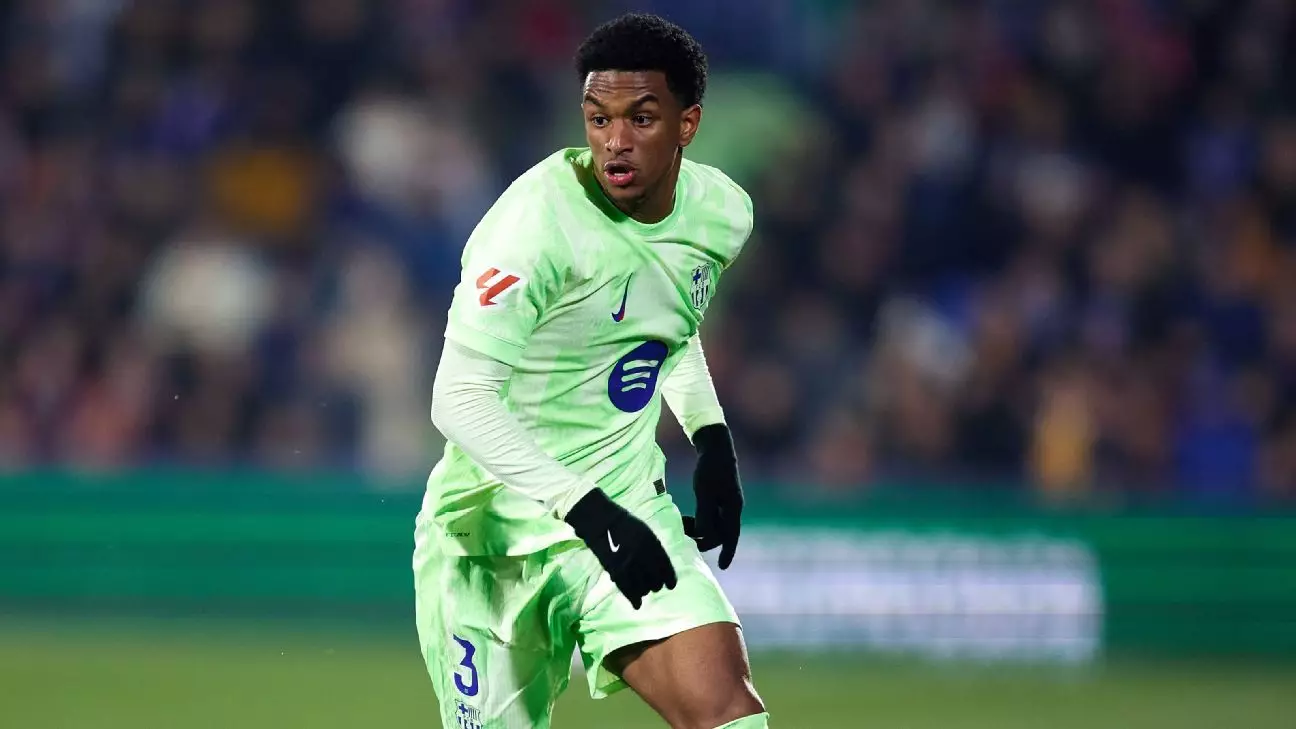The recent incident involving Barcelona’s Alejandro Balde during a LaLiga match against Getafe has spotlighted the persistent issue of racism in football. Despite several efforts and protocols being put in place to combat this abhorrent behavior, it seems that the sport still has a significant way to go in addressing the problem at all levels. Balde’s experience serves as a painful reminder that racial abuse is still a reality faced by athletes on the pitch, and that the culture of impunity must be dismantled.
During the first half of the match, Balde, who is of Black descent, was subjected to racially charged insults from sections of the Getafe fanbase. In post-match comments, Balde expressed his disappointment, indicating that he had reported these incidents to the referee, Pablo González Fuertes. Regrettably, it took until the second half for the league’s anti-racism protocol to be activated—an indication that immediate responses to such incidents are lacking. Through his words, Balde emphasized that racism within the sport must be addressed head-on: “It’s lamentable and something that should not keep happening.”
The protocol in question allows referees to halt games upon being made aware of racist behavior—this further highlights the importance of players being vocal about their experiences. The confusion and uncertainty Balde felt about how that protocol was implemented are concerning, suggesting that while the framework exists, its execution is inconsistent and lacks the clarity needed for a swift, decisive response.
In the aftermath of Balde’s experience, FC Barcelona’s head coach, Hansi Flick, spoke out against the abuse. His condemnation of the incident aligns with a broader societal and ethical responsibility that football clubs, fans, and players have in eradicating racism from the sport. Flick’s statement urged for accountability, asserting that such intolerable actions have no place in football or society at large. He emphasized the collective duty of the football community to confront these issues, encouraging fans and bystanders to play an active role in fostering a more respectful environment.
The challenge is not solely with the perpetrators of racial abuse but extends to creating a culture where such behavior is universally denounced. Just as Flick pointed out, silence from those in the vicinity of abusive behavior sends a troubling message—indifference to racism perpetuates its existence.
Balde’s experience was not an isolated incident; it occurred on the same day as another report of racial abuse, this time involving Elche defender Bambo Diaby during a match against Sporting Gijón. The identification of one alleged perpetrator by local police in Gijón underscores the fact that accountability can be achieved if the proper actions are taken swiftly. However, these incidents reveal a concerning trend in Spanish football—one that includes well-documented abuse targeting star players like Vinícius Júnior.
Although LaLiga and the Royal Spanish Football Federation (RFEF) are working actively to combat racism via legal measures and community initiatives, the enduring nature of these offenses suggests deeper societal issues at play. The sentencing of three Valencia fans to prison for racially abusing Vinícius Júnior represents a positive step forward, yet these individual cases must translate into systemic change and an end to the cycle of racial insults.
To forge a meaningful path forward, stakeholders at every level must commit to collective action aimed at fighting racism. This entails not only swift and appropriate responses to incidents but also a long-term strategy that includes education, community engagement, and cultural change. Football clubs must take the lead in implementing training programs that address racism, fostering an environment where players feel safe and respected.
In addition, fans should be encouraged to stand up against racism, using their voices to call out abusive behavior within their ranks. Creating campaigns that provide platforms for education and dialogue around race and discrimination in football can help shift public perception and promote lasting change.
Ultimately, the journey toward eradicating racism in football is ongoing and requires the combined efforts of players, clubs, fans, and governing bodies. By confronting racism head-on, the football community can ensure a safer and more inclusive environment for everyone who values the sport.

Leave a Reply